Despite being a home bird, Grainne Hurley tells Irish Country Living that her love of agriculture took her out of rural Dunmanway to Dublin, then Canada and all the way back home again. “I grew up on a very rural farm where my dad was farming 60 acres. Our home place was on a hill; I absolutely adored it. I always loved being out on the farm with my dad. If we had to go shopping, I just hated that - I wanted to be at home in the muck.”
Grainne always had the desire to work outside and her dad encouraged this passion. She was given the responsibility of looking after the calves. This caused some tension at times - particularly around the leaving certificate, while Grainne was “putting the head down to study”. She recalls her father coming into the house looking for her help.
“He shouted up, ‘Grainne, where are you? Are you not doing the calves this evening?”
Grainne continues, “I couldn’t do agricultural science [in school], which I was disgusted with at the time.” Instead, she took up agricultural economics outside of school, where a local teacher gave classes to a group of 20 students.
Flying the nest
Grainne’s route to college was different from the norm. A home bird at the time, she didn’t want to move to Dublin.
“When I did my leaving cert, to do a degree in agriculture you had to go to University College Dublin [UCD],” she explains, “but I said there is no way I was going to Dublin!”
After studying earth science in University College Cork (UCC) for three months, Grainne dropped out; realising this course wasn’t for her. While figuring out what to do next, she worked in a fish factory in Skibbereen.
“I knew I wanted to do the agriculture course, but I didn’t have the guts to go to Dublin,” she recalls.
It was when her twin sisters education required a move to Dublin, to attend NCAD that Grainne decided to make the move with her. Her course of choice, animal and crop production, was a big change, but with the help of her new classmates, Grainne settled in well.
“The ag science students are just a great bunch of people,” she says. “I felt really at home, they were friends for life.”
Continuing her home-grown passion for dairy, Grainne worked in relief milking throughout her time in college. The course entailed doing a work placement on different farm enterprises, which Grainne found really interesting. She admits that her mother was not so favourable to pig production. While on her pig placement, “?my mum was giving out to me when I came home in the evenings to shower straight away.”
?During college Grainne and a friend travelled to Canada for three months to work on a dairy farm in the province of Manitoba. She recalls “They used to milk the cows three times a day and also grew a lot of crops, which was very different to what we had ?here.” ?
After graduation from her undergrad, Grainne went on to complete a PhD at Moorepark, in conjunction with Queens University Belfast. Her research looked at reproductive development in perennial ryegrass.
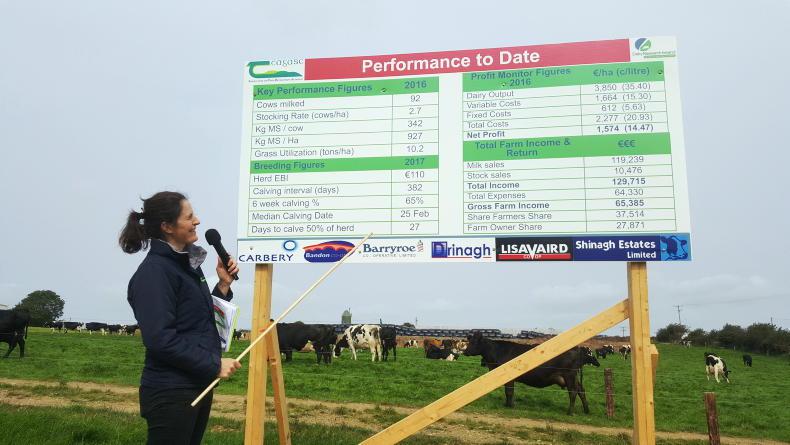
Grainne Hurley, Teagasc covering production figures for the Shinagh Estates farm.
“A lot of it was done by taking samples and looking at plant structures, I loved it,” she says. “I worked mainly in Moorepark, travelling to Belfast sometimes.”
She jokingly adds, “You’re kind of blending out from a student into the real world.”
This Teagasc Walsh fellowship allowed Grainne to make great connections and learn a variety of skills.
“That really stood ?to me, even now,” she says. “It’s different skills you learn from research; thinking outside the box. Those three years really set me up to where I am now.”
Being in an advisory role was always on Grainne’s radar. She took up the role as a dairy advisor with Teagasc in Killarney, Co Kerry, where she worked for seven years. This involved setting up discussion groups on grass measuring and general budgeting , which - at the time - “was one of the earlier groups in terms of that.”
“I love Kerry to this day; the Kerry farmers are brilliant. Sure, I used to have banter with them,” she smiles.
After commuting from Cork for a number of years, Grainne got transferred to the Clonakilty office where she worked for Teagasc; covering the Bandon area. She tells Irish Country Living, “It is an intense area with brilliant farmers. It was very technical and very challenging, at times, but I loved it.”
The importance of collaboration
In 2019 Grainne took the opportunity to work in the Teagasc- Dairygold joint programme. This programme involved working with 10 demonstration (or “signpost”) farmers to help showcase what farmers are doing to reduce emissions on their farms. Grainne worked with these signpost farmers to transfer knowledge through events, farm group meetings and written articles.
“These farmers are very open to change and to progressing,” Grainne says. “If one farmer is trying something in the group, the rest of them are eager to know how they are getting on. A lot of these farms were measuring carbon sequestration*, which is quite new, so they are really open to technologies and trying new things.” As the Teagasc- Dairygold programme was based in Tipperary and Limerick, Grainne spent a lot of time on the road.
When the opportunity to apply for the Teagasc west Cork regional manager came up, Grainne admits; “It was something that was on my mind for the future. I didn’t think the opportunity would come up so soon. Something I enjoyed in my career was progressing and managing teams.” So, she went for it and was successful.
With a young family, Grainne was happy to return to the west Cork region and work closer to home. Since taking on the role, Grainne says she is enjoying her work. ”
“It’s completely changed, the wellies are getting dusty,” she laughs. But with a dairy farm at home, she can’t get too far away from the cows. “The advisors I manage, I would have known very well, they are a fantastic team which makes my job easier”.
Uncertain times
Grainne highlights “times are a bit uncertain at the moment, particularly in agriculture”. It’s important in her role that she can show a pathway for farmers “in terms of where they can go”. She continues “There can be a lot of negativities surrounding agriculture at the moment which is quite frustrating for farmers. I think in terms of country’s worldwide, we forget what a good job we are doing here”. Grainne can see a lot of opportunities for diversification in the west Cork region “with regards to carbon farming, wind and solar energy, organics ect. I see [my role] as trying to encourage that change over”.
*Note: Carbon sequestration is the capturing, removal and storage of carbon dioxide (CO2) from the earths atmosphere.
Despite being a home bird, Grainne Hurley tells Irish Country Living that her love of agriculture took her out of rural Dunmanway to Dublin, then Canada and all the way back home again. “I grew up on a very rural farm where my dad was farming 60 acres. Our home place was on a hill; I absolutely adored it. I always loved being out on the farm with my dad. If we had to go shopping, I just hated that - I wanted to be at home in the muck.”
Grainne always had the desire to work outside and her dad encouraged this passion. She was given the responsibility of looking after the calves. This caused some tension at times - particularly around the leaving certificate, while Grainne was “putting the head down to study”. She recalls her father coming into the house looking for her help.
“He shouted up, ‘Grainne, where are you? Are you not doing the calves this evening?”
Grainne continues, “I couldn’t do agricultural science [in school], which I was disgusted with at the time.” Instead, she took up agricultural economics outside of school, where a local teacher gave classes to a group of 20 students.
Flying the nest
Grainne’s route to college was different from the norm. A home bird at the time, she didn’t want to move to Dublin.
“When I did my leaving cert, to do a degree in agriculture you had to go to University College Dublin [UCD],” she explains, “but I said there is no way I was going to Dublin!”
After studying earth science in University College Cork (UCC) for three months, Grainne dropped out; realising this course wasn’t for her. While figuring out what to do next, she worked in a fish factory in Skibbereen.
“I knew I wanted to do the agriculture course, but I didn’t have the guts to go to Dublin,” she recalls.
It was when her twin sisters education required a move to Dublin, to attend NCAD that Grainne decided to make the move with her. Her course of choice, animal and crop production, was a big change, but with the help of her new classmates, Grainne settled in well.
“The ag science students are just a great bunch of people,” she says. “I felt really at home, they were friends for life.”
Continuing her home-grown passion for dairy, Grainne worked in relief milking throughout her time in college. The course entailed doing a work placement on different farm enterprises, which Grainne found really interesting. She admits that her mother was not so favourable to pig production. While on her pig placement, “?my mum was giving out to me when I came home in the evenings to shower straight away.”
?During college Grainne and a friend travelled to Canada for three months to work on a dairy farm in the province of Manitoba. She recalls “They used to milk the cows three times a day and also grew a lot of crops, which was very different to what we had ?here.” ?
After graduation from her undergrad, Grainne went on to complete a PhD at Moorepark, in conjunction with Queens University Belfast. Her research looked at reproductive development in perennial ryegrass.

Grainne Hurley, Teagasc covering production figures for the Shinagh Estates farm.
“A lot of it was done by taking samples and looking at plant structures, I loved it,” she says. “I worked mainly in Moorepark, travelling to Belfast sometimes.”
She jokingly adds, “You’re kind of blending out from a student into the real world.”
This Teagasc Walsh fellowship allowed Grainne to make great connections and learn a variety of skills.
“That really stood ?to me, even now,” she says. “It’s different skills you learn from research; thinking outside the box. Those three years really set me up to where I am now.”
Being in an advisory role was always on Grainne’s radar. She took up the role as a dairy advisor with Teagasc in Killarney, Co Kerry, where she worked for seven years. This involved setting up discussion groups on grass measuring and general budgeting , which - at the time - “was one of the earlier groups in terms of that.”
“I love Kerry to this day; the Kerry farmers are brilliant. Sure, I used to have banter with them,” she smiles.
After commuting from Cork for a number of years, Grainne got transferred to the Clonakilty office where she worked for Teagasc; covering the Bandon area. She tells Irish Country Living, “It is an intense area with brilliant farmers. It was very technical and very challenging, at times, but I loved it.”
The importance of collaboration
In 2019 Grainne took the opportunity to work in the Teagasc- Dairygold joint programme. This programme involved working with 10 demonstration (or “signpost”) farmers to help showcase what farmers are doing to reduce emissions on their farms. Grainne worked with these signpost farmers to transfer knowledge through events, farm group meetings and written articles.
“These farmers are very open to change and to progressing,” Grainne says. “If one farmer is trying something in the group, the rest of them are eager to know how they are getting on. A lot of these farms were measuring carbon sequestration*, which is quite new, so they are really open to technologies and trying new things.” As the Teagasc- Dairygold programme was based in Tipperary and Limerick, Grainne spent a lot of time on the road.
When the opportunity to apply for the Teagasc west Cork regional manager came up, Grainne admits; “It was something that was on my mind for the future. I didn’t think the opportunity would come up so soon. Something I enjoyed in my career was progressing and managing teams.” So, she went for it and was successful.
With a young family, Grainne was happy to return to the west Cork region and work closer to home. Since taking on the role, Grainne says she is enjoying her work. ”
“It’s completely changed, the wellies are getting dusty,” she laughs. But with a dairy farm at home, she can’t get too far away from the cows. “The advisors I manage, I would have known very well, they are a fantastic team which makes my job easier”.
Uncertain times
Grainne highlights “times are a bit uncertain at the moment, particularly in agriculture”. It’s important in her role that she can show a pathway for farmers “in terms of where they can go”. She continues “There can be a lot of negativities surrounding agriculture at the moment which is quite frustrating for farmers. I think in terms of country’s worldwide, we forget what a good job we are doing here”. Grainne can see a lot of opportunities for diversification in the west Cork region “with regards to carbon farming, wind and solar energy, organics ect. I see [my role] as trying to encourage that change over”.
*Note: Carbon sequestration is the capturing, removal and storage of carbon dioxide (CO2) from the earths atmosphere.






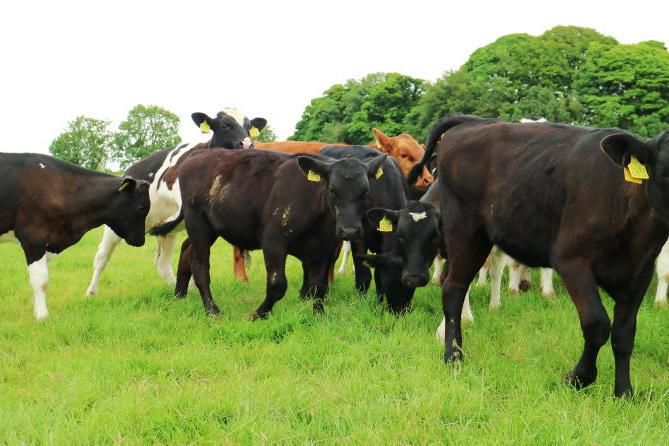
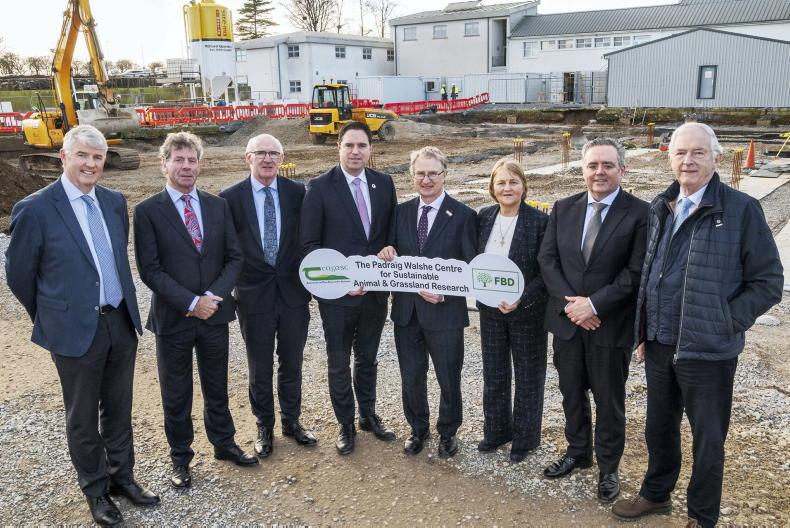
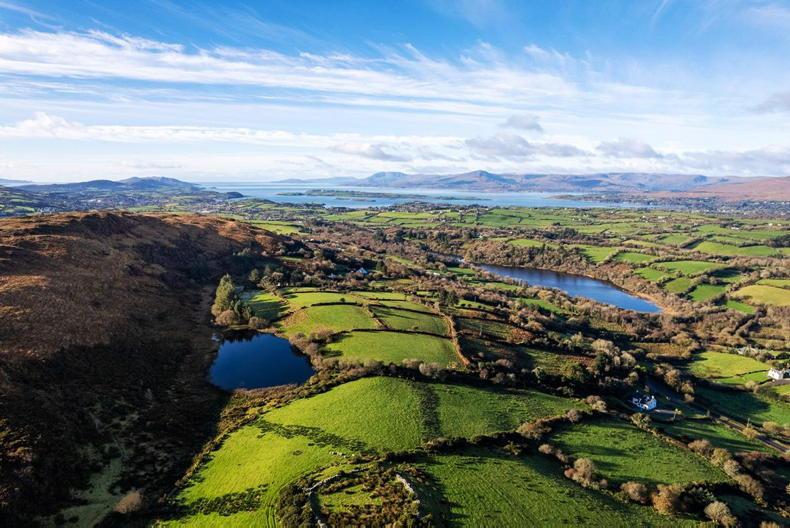
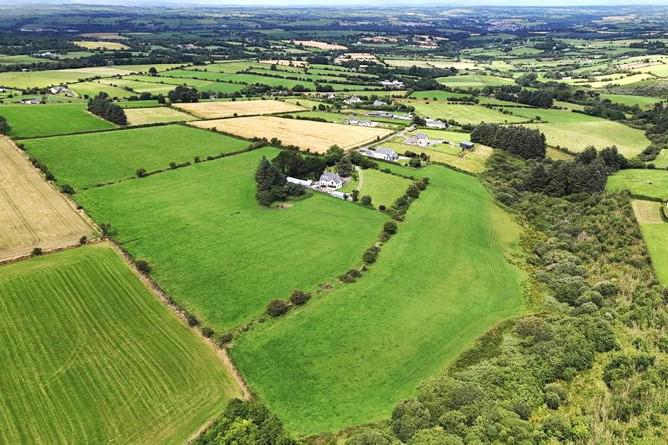
SHARING OPTIONS